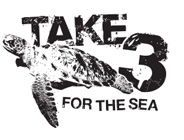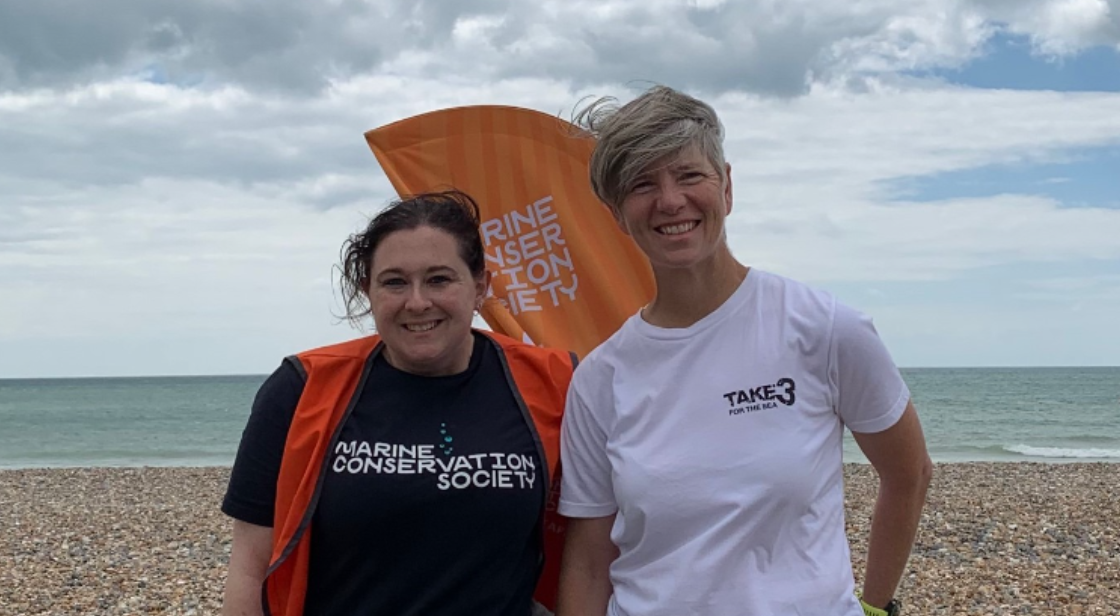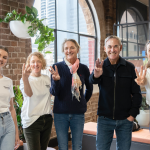Beach Clean Up data in the UK indicate 11% reduction in litter
Dianne McGrath, Clipper Round the World Yacht Race crew member and proud Take 3 for the Sea Ambassador, took time off from her training to take part in a beach clean-up organised by the UK’s Marine Conservation Society in Littlehampton, UK. You can read her account of her day below:
If you don’t measure it, you can’t tell what is changing, or help inform policy decision-making. This is why the UK’s Marine Conservation Society collects quarterly data on the state of the UK beaches for an annual Beachwatch report. This report informs the OSPAR Commission – a collective of 15 Governments and the EU that cooperate to protect the marine environment of the North-East Atlantic.
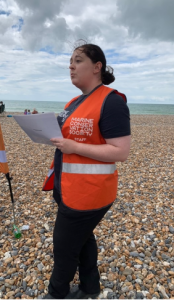
Beach Clean Officer Claire from the Marine Conservation Society briefing the volunteers
In June, on a scheduled day off from my Clipper Round the World Yacht Race training, I volunteered at a Marine Conservation Society beach clean-up at Littlehampton’s West Beach that contributed to the quarterly OSPAR survey. Eight of us turned up on a windy Saturday morning, and after a thorough briefing by Beach Clean Officer, Claire, we paired up and picked up any litter we could find in the 100m control zone that is surveyed every quarter.
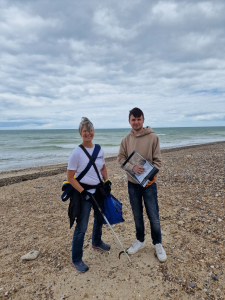
Team Sam & Dianne
I was paired up with Sam, and we collected over 2kg of litter in just over an hour, contributing to the total of over 12.5kg of rubbish collected. Sam filled in the detailed OSPAR survey sheet, tallying each piece of rubbish I picked up into separate categories. It was important to categorise the rubbish so that the final report demonstrates the impact of good policy and can inform future decision-making. For example, the 2022 State of our Beaches report noted that since 2021 the amount of litter across the UK and Channel Islands has decreased by 11%, demonstrating that waste policies are effective.
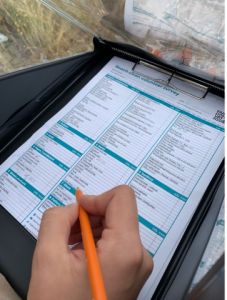
The OSPAR Survey
The most common rubbish items that Sam and I picked up and categorised were plastic, followed by tissues/paper towels, and drink containers (cans and bottles). Unlike Australia, Container Deposit Schemes aren’t yet widespread in the UK, so it is no surprise that drink containers appear consistently in Marine Conservation Society beach cleans (95% of them in 2022).
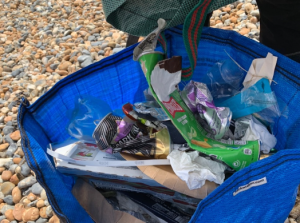
One of the two bags of litter I picked up
However, plastics are the largest problem. From sauce sachets and plastic bags through to polystyrene, most of the litter found on beaches in the UK, and everywhere around the world, is plastic. I’m grateful for the work of organisations such as the Marine Conservation Society, and Take 3 for the Sea, to not only clean our beaches, but to educate and inform. Without facts, we are just guessing. And facts can help direct our actions.
We can all take small actions to help protect our beaches and oceans. Simply take 3 pieces of rubbish with you when you leave the beach, waterway or… anywhere and you have made a difference.
—
The Marine Conservation Society
The Marine Conservation Society is the UK’s leading ocean charity, fighting for cleaner, better-protected, healthier seas. The charity works to highlight the importance of our ocean, and the life within it, through working with government, industry and education, to take action to restore and protect the marine environment.

